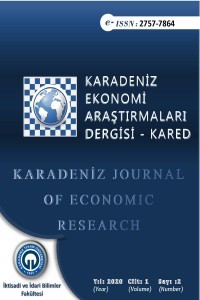Liberal İdeolojinin Eleştirisi
Liberalizm bireysel özgürlüğü, insan haklarını, siyasal eşitliği ve sınırlı iktidarı savunan kapsamlı bir doktrindir. Bu doktrin bireyin özgür iradesine göre davranma ve kendi potansiyelini gerçekleştirme hakkına önem verir. Temelinde, insanların kendi hayatlarını, düşüncelerini, kararlarını, inançlarını ve geleceğe ilişkin tasarımlarını özgürce seçebilme ve ifade edebilme hakkına sahip olma düşüncesi yer alır. Dolayısıyla bireycilik ve özgürlük, liberalizmin temel tanımlayıcı unsurlarıdır. Mamafih, liberalizmin bireyi toplumsal bağlamdan kopuk, kendi kendine yeter ve kendi kararlarını almaya ehil bir fail, özgürlüğü de fildişi kulesinde mutlu ve mutmain olan bu faile keyfî müdahalede bulunmama olarak tanımlaması, zaman zaman dozu yüksek olabilen bazı eleştirilere maruz kalmasına neden olmuştur. Alain de Benoist’in bu makalesi, söz konusu eleştirilerin en yetkin olanlarından bir tanesidir.
Anahtar Kelimeler:
Liberalizm, Bireycilik, Eşitlik, Özgürlük
Critique of Liberal Ideology
Liberalism is a comprehensive doctrine that advocates individual freedoms, human rights, political equality and limited government. It emphasizes the right of the individual to act according to his or her free will and to realize his or her potential. It is based on the idea that people have the right to freely choose and express their own lives, thoughts, decisions, beliefs and designs for the future. Individualism and freedom are therefore the basic defining elements of liberalism. However, liberalism's definition of the individual as a self-sufficient and self-determined agent detached from the social context, and freedom as the freedom from arbitrary interference with this agent, who is happy and content in his ivory tower, has been subjected to some criticism, which can be quite strong at times. This article by Alain de Benoist is one of the most authoritative of these criticisms.
Keywords:
Liberalism, Individualism, Equality, Freedom,
- Yayın Aralığı: Yılda 2 Sayı
- Başlangıç: 2020
- Yayıncı: Karadeniz Teknik Üniversitesi
